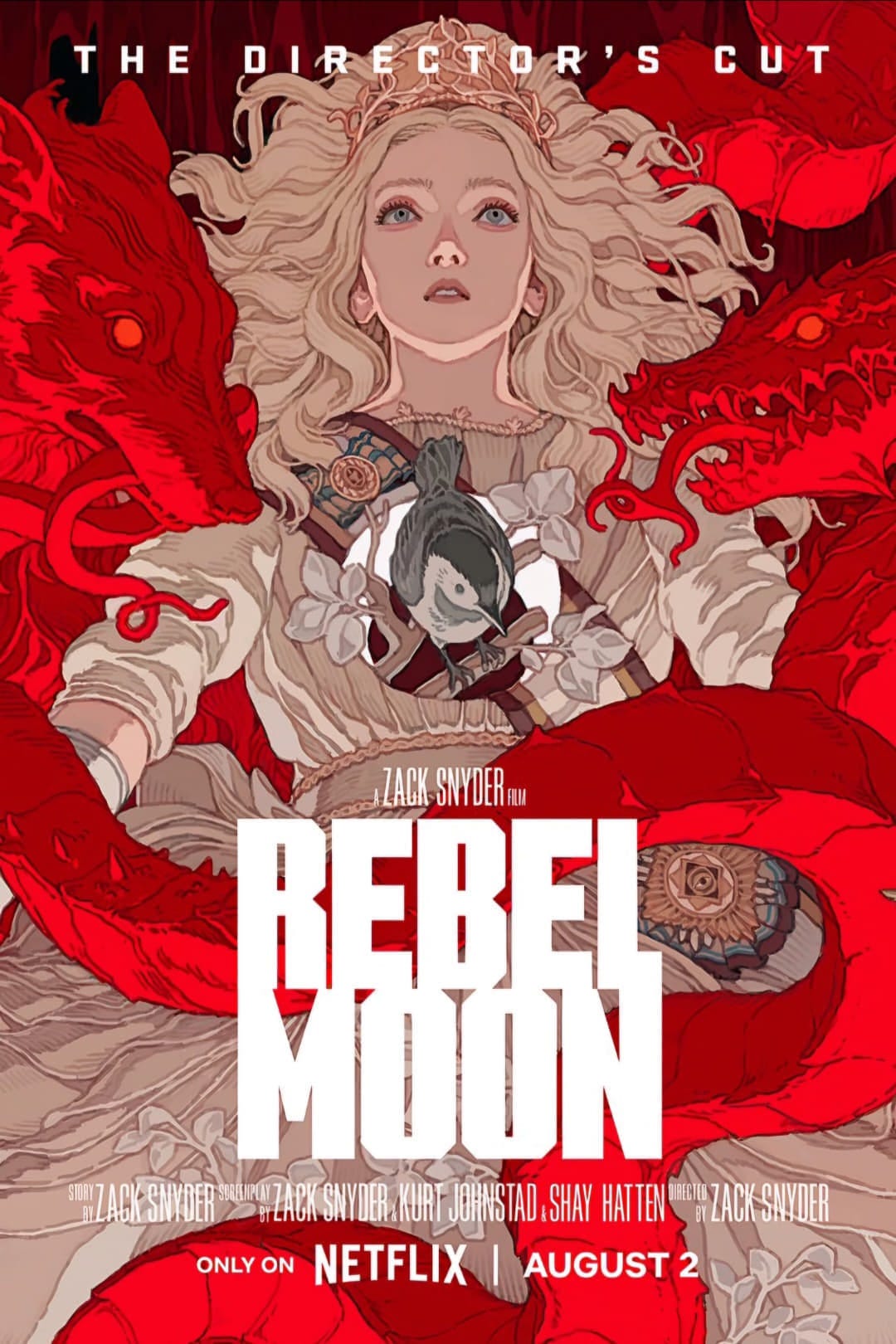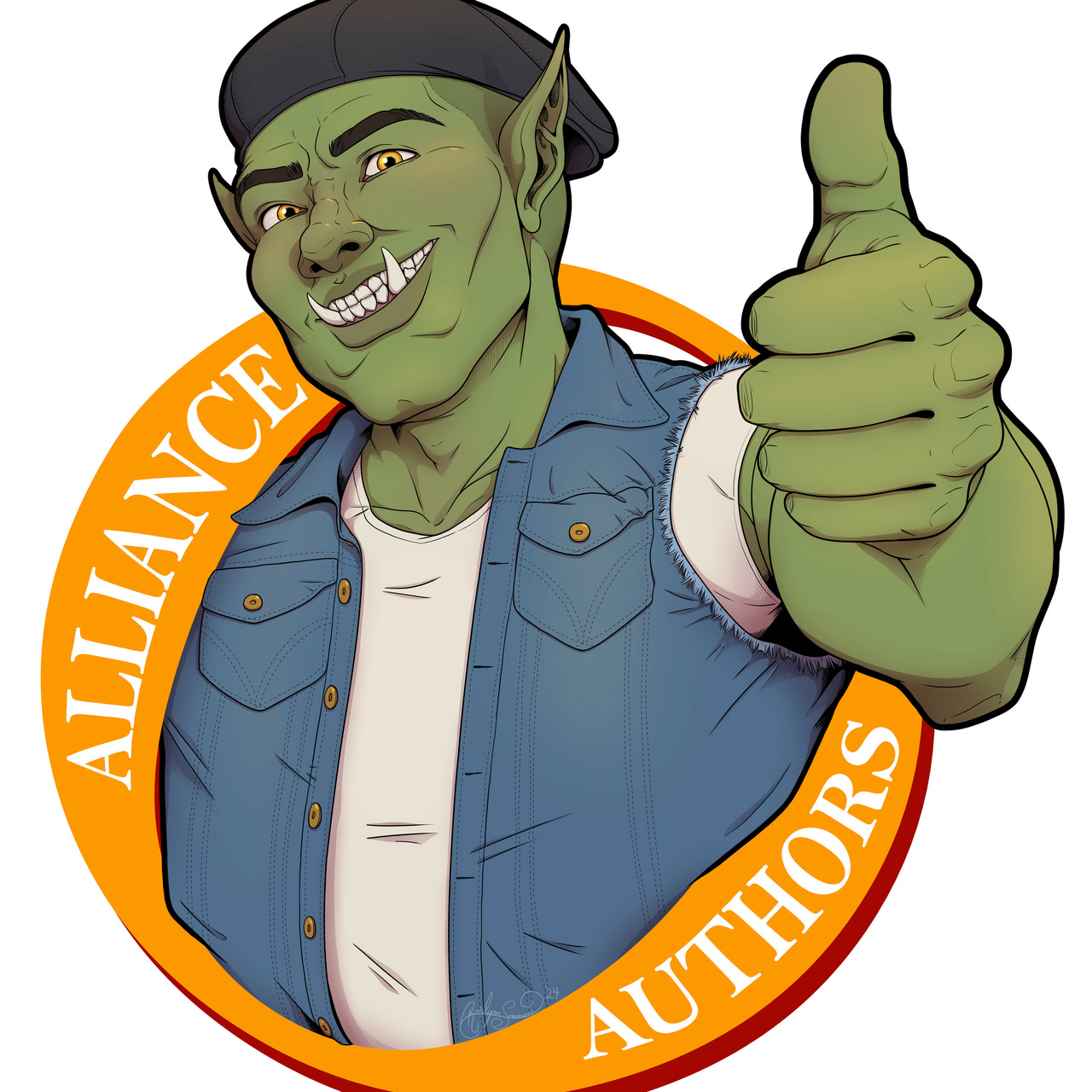The Star Wars Killer that Didn’t Conquer the Galaxy Far, Far Away
A Review of Zack Snyder’s REBEL MOON
It seems Star Wars hasn't been great since George Lucas (unwisely) sold his self-made empire LUCASFILM to the Walt Disney Company, and handed the reins of his empire to Kathleen Kennedy. That story can be told in a book and this isn’t the story I am going to tell. The story that I will tell is a footnote to the Star Wars story, but deserves a story of its own, so gather around the campfire and I will weave a tale.
The story I will tell concerns auteur Zack Snyder and his space epic Rebel Moon, a passion project he spent over twenty years developing as his love letter to the Star Wars universe and Heavy Metal. It started as a piece of Star Wars fan fiction that the auteur had presented to LUCASFILM during the cusp of its acquisition by Disney. Its premise sounds reminiscent of classic Star Wars and the films of Akira Kurosawa (particularly Seven Samurai). A farming community of the planet Veldt is approached by the evil Imperium to be the breadbasket for its Army as it conquers their system or be destroyed. A former soldier hiding in the community (Sofia Boutella) sets about to recruit a band of fighters to protect the community and resist the Imperium.
The plot itself is modeled after Seven Samurai, but is, in reality, an unofficial remake of Roger Corman’s Star Wars knock-off Battle Beyond the Stars (1980), which itself is a space opera remake of Seven Samurai itself. It should be mentioned that according to legend, Battle Beyond the Stars was one of the few if not only Star Wars knock-offs that George Lucas himself actually enjoyed. The film itself can be watched for free on Tubi or bought on special edition Blu-ray and just ten minutes into the film it is easy to see why Lucas would have a soft spot for Battle Beyond the Stars.
As to the story of Rebel Moon itself, it goes all the way back to Snyder’s college days, and would explain to ReelBlend:
I've been putting (Kora’s) story together for, oh gosh, for 20 or 30 years, or something like that. But you know, in fits and starts. I wouldn't say I was working on her for 30 years. That's crazy. But yeah, I've been working on her for a while. She's just an interesting… she’s very attractive to my mythological view of storytelling, and mythology in general. And she really fits the, she really fits the Joseph Campbell-ian model.
As Snyder went on to explain to ReelBlend, he had approached LUCASFILM shortly before their acquisition by Disney about being a home for what he saw as a one-off ‘R-Rated’ Star Wars fanfiction. But it wasn't meant to be.
(The meeting) was with Kathleen Kennedy, and it was… in those days before the sale, there was a moment in time when Star Wars was in this weird place. And I felt like my story was very much about – it was really a fan-fiction film in a lot of ways. And the fact that I really wanted it to be rated R, and I didn't want any recurring (Star Wars) characters from canon. There were a bunch of things I wanted to do that were very specific, which I feel like, in retrospect, sort of fits in some ways into kind of what they've done in some ways not. It was fun. For me, I'm a big Star Wars fan, so it was a big… I thought it was great.
As we all know Star Wars projects seem to come and go with directors getting attached and then replaced. Phil Lord and Chris Miller were replaced during the making of Solo: A Star Wars Story. James Mangold was attached to an unmade Star Wars film but would be thrown a bone in the form of the fifth Indiana Jones film, which was a disaster worthy of a story itself. And after the recent release of the disastrous Star Wars series The Acolyte, which was the first equivalent of an ‘R-rated’ Star Wars show containing content not suitable for the family audiences that the galaxy far, far away tends to attract, and with the massive backlash by fans all over, it’s probably a good thing that Zack Snyder wasn't able to make Rebel Moon as a Star Wars property.
Snyder himself would soon realize that his story would be better served as an original property, since his wife and producing partner Debra Snyder would note that one thing her husband was great at is worldbuilding, so why not make it original?
As he continued to tell ReelBlend:
My Star Wars movie would've just… it was the reason why I wanted to do it as sort of its own thing. A one-off universe. I felt like an R-rated Star Wars was a fetish concept that didn't really – it was an outlier, and didn't really belong, frankly, within the continuity of Star Wars. But I still felt like there would be, you know, for people that grew up on Star Wars and whose aesthetic evolved, there would still be a market for that universe.
And a market there is for space opera, after Disney was churning out Star Wars content from LUCASFILM and a Guardians of the Galaxy trilogy from MARVEL STUDIOS, although the quality of those films varies from good (Rogue One, The Mandalorian seasons 1-2, & Guardians of the Galaxy vol. 1 & 2), to mostly terrible (The Last Jedi, Rise of Skywalker, The Acolyte, & Guardians of the Galaxy vol. 3), so why not bring Rebel Moon to a rival studio itching for a new cash cow?
He couldn't bring it to Warner Brothers, due to Snyder having a falling out with them over how Justice League was handled. Besides, Snyder’s films since Batman VS. Superman haven't been pulling in the box office numbers that the early MARVEL films were pulling in, so the studio wanted to have more control over Snyder, to which he replied by figuratively giving them the bird and going over to NETFLIX, who offered him a blank check, and he took it.
It was at NETFLIX that Snyder gave them a smash hit with Army of the Dead (2021) his first zombie film since his film debut in 2004 with the remake of George A. Romero’s Dawn of the Dead. And with that Rebel Moon was greenlit, but there would be caveats. Snyder wanted to make his space opera a two-part film with each installment up to three hours in length. NETFLIX suddenly got cagey. But it didn't make sense from an audience perspective. It was NETFLIX that greenlit and made the three-hour + Martin Scorsese film The Irishman (2019), which got Oscar nominations including Best Picture, and got a physical media release with Criterion. And that film had the misfortune of starring washed-up actor Robert DeNiro who alienated half the American public with his unhealthy case of TDS that shows no sign of abating any time soon. It turned out that NETFLIX wanted to use the ‘RELEASE THE SNYDER CUT’ gimmick, which began with Justice League, which worked wonders for the Snyder fanbase, so why not replicate it with Rebel Moon and get four movies for the price of two? With that in mind, it's easy to see the greed in these NETFLIX executives, but this was NETFLIX, not Warner Brothers. NETFLIX releases their films straight to streaming, which wasn't the case for Warner Brothers for the most part.
Why would NETFLIX want two different versions of each of the two films? Why not just release Snyder’s true vision right off the bat? Essentially, they had Snyder release two, two-hour versions of each film that are essentially family-friendly versions. Don't these NETFLIX executives realize that the watered-down versions of Snyder’s films have never performed well and are not well-received by the filmgoing public? Don't they realize that not releasing Snyder’s preferred versions four months after releasing the family-friendly versions there would be those among the filmgoing public that will wait for Snyder’s DIRECTOR’S CUTS to come out, meanwhile his films would be dragged through the mud of critics and audiences at the ratings? Why put yourself through that if you're a filmmaker? That’s exactly what happened to Rebel Moon and as a result the DIRECTOR’S CUTS upon release were met with less viewership and didn't make the top ten most views internationally on the streaming giant.
Rebel Moon as a result was a bomb instead of the smash-hit they were hoping for. Of course, the many legions of Snyder fans argue that NETFLIX got four movies for the price of two, however, despite the combined ratings of all four films, the numbers don't come close to surpassing NETFLIX’s biggest hits of all time. To make matters worse, the streaming giant canceled Snyder’s planned sequel to his hit Army of the Dead and all further spin-off plans.
Is the future of Rebel Moon grim?
It wouldn't surprise me, but how does the DIRECTOR’S CUTS fare? Are they any good? Here’s my take. The story is the same and the extended cuts fill in most of the plot holes and answers the questions about why the characters do what they do by giving more backstory. But there were some scenes that seemed like unnecessary fillers. Both films play like assembly cuts rather than director’s cuts and really need another round of editing to ideally take a half- hour out of each film. Snyder’s trademark slo-mo style isn't as present in the extended cuts, which makes the films work better in my opinion. The violence is over the top, which didn't bother me. What bothered me was the over-the-top foul language, gratuitous nudity, and sex scenes that border on pornographic. Instead of taking the route of classic Battlestar Galactica or classic Star Wars, where the language was inventive and fit the story, Snyder takes the path of least resistance using modern language with ‘F-bombs’ and idioms used in our present post-modern day like Game of Thrones or The Witcher, making it uninspiring and unoriginal.
The films, in a nutshell, are entertaining in parts, but are post-modern in the worst possible way, making it an overhyped Star Wars killer wannabe that doesn't come close to slaying the greatness of the classic galaxy far, far away. I plan on reading the two book novelizations by V. Castro and the comic miniseries House of the Bloodaxe from TITAN as I enjoy media tie-in fiction and mostly find the tie-in fiction to be superior to the films they're based on. The movies themselves are not something that I will be binge-watching again and again like the original Star Wars trilogy.
If I were to give Zack Snyder any advice he should go back to his roots and make a smaller-scale film for somebody like A24 films. When faced with budget limitations he is at his best. The problem with success as a filmmaker you’re given more money and with more money comes less of an incentive to be artistically creative.
My final verdict is that I’ve seen better and I’ve seen worse, and Rebel Moon does not have the material of a classic in the making. But it is entertaining.
This substack will be 100% free to read. The KO-FI has been set up to collect donations from interested patrons. For more information please check out the links below to like, share, and subscribe.
Ko-fi:
https://ko-fi.com/thomashyland
Alliance Authors:
Brothers KRYNN:
Hylandia:








It was a no no for me as whole, and I had to force myself to watch the 2nd one...